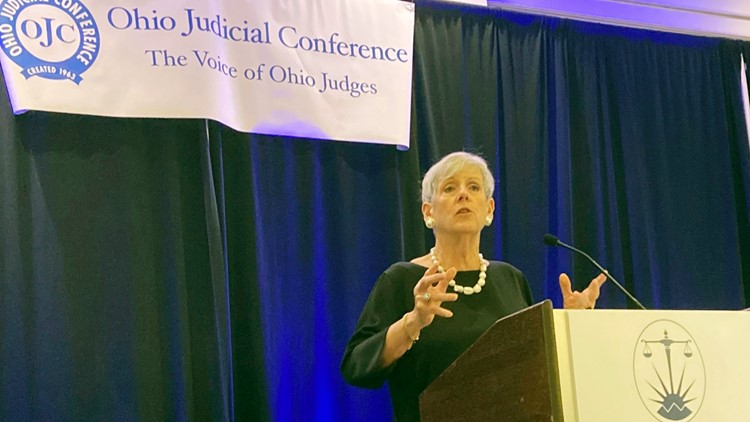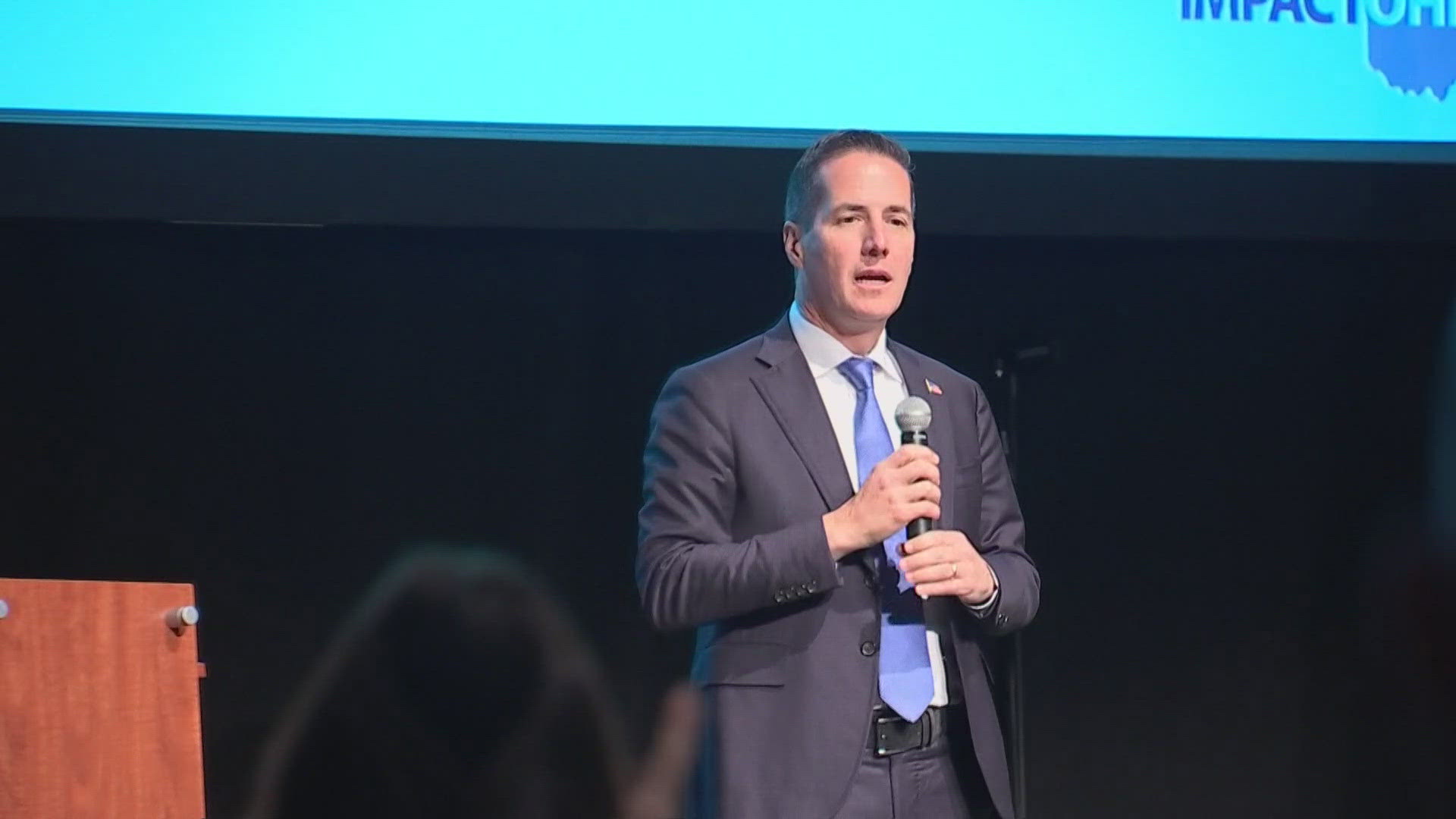COLUMBUS, Ohio — Ohio's efforts to curb gerrymandering are not working and voters must once again amend the constitution to take politics completely out of the process, the retiring chief justice of the state Supreme Court said Thursday.
The current redistricting commission, created by constitutional amendment in 2015, has had no discernible effect on gerrymandering and as a result voters this fall will elect candidates based on unconstitutional legislative districts, Republican Maureen O’Connor said in her annual and final state of the judiciary speech.
A new amendment must create a commission that restricts partisan politics by prohibiting elected officials from serving, O'Connor said. The current Ohio Redistricting Commission consists of elected lawmakers and state officeholders, including the governor, and has a 5-2 Republican majority.
Instead, commission members must consist of “sensible people who are not driven by politics but rather by what’s fair,” O'Connor said. “Fair representation and justice.”
O'Connor's remarks echoed the position she took in January when the court first ruled — in a 4-3 decision with O'Connor in the majority — that initial maps drawn by the commission were unconstitutional.
The court made similar rulings four more times before a federal court ordered Ohio to use the third set of Statehouse maps approved by the Ohio Redistricting Commission, maps the state Supreme Court had also found unconstitutional.
O'Connor sided with the court's three Democrats each time, and some fellow Republicans called for her impeachment, though nothing came of it.
“Political theater,” O'Connor said after the speech, adding: “I don’t give it a second thought.”
During her speech, O'Connor said she planned to play some kind of role in promoting another constitutional amendment to fight gerrymandering.
Also Thursday, O'Connor criticized an upcoming constitutional amendment that will require judges to consider criminal suspects’ threat to public safety when setting bail. Republicans pushed the measure in reaction to a January state Supreme Court ruling that lowered the bond for a man accused of fatally shooting another in the head during a robbery.
O'Connor called the measure an effort “to manufacture fear” and said it wasn't necessary because public safety is the first thing judges must consider when setting bail.
Putting an emphasis on high monetary bonds will “continue a pattern of jailing the people who can least afford release,” O'Connor said to applause from a crowd consisting mainly of other judges.
O’Connor is a former Summit County judge and prosecutor who also served as lieutenant governor and the state Public Safety director in the administration of former Republican Gov. Bob Taft. She was first elected to the Ohio Supreme Court in 2003 and twice elected chief justice, in 2010 and 2016.
O'Connor, who turned 71 in August, is the first Ohio chief justice to leave office because of age limits, which prevent judicial candidates from running for office at 70 or older. Other Ohio chief justices have died or lost elections before confronting age limits.
“Now I’m not going to lose an election again, we know that for sure," O'Connor joked. “And if I can stick out 105 more days I think I’ve got a new record for the state of Ohio.”



